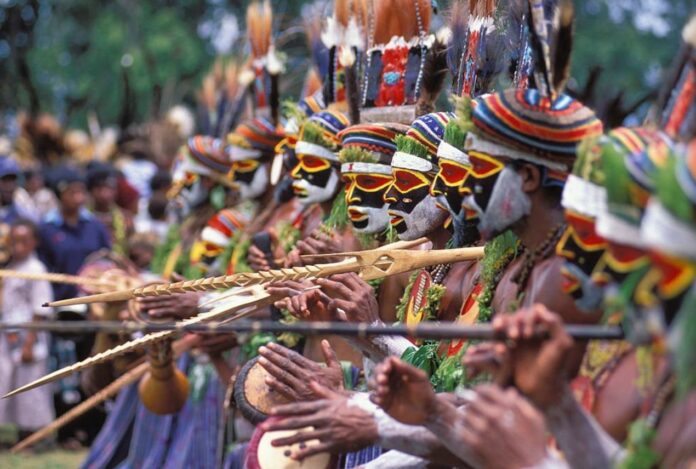According to a new research conducted by Irene Gallego Romero of the University of Melbourne, Australia, and published today in the open-access journal PLOS Genetics, the Denisovans, a mysterious human ancestor who lived alongside ancient humans, likely helped in the evolution of the immune system of modern Papuans.
Up to 5% of the genome of Papuans, the indigenous inhabitants of New Guinea Island, comes from Denisovans, an extinct population closely linked to Neanderthals whose DNA and scanty remains may be found in Siberia and Tibet.
Researchers looked for Denisovan and Neandertal DNA sequences in the genomes of 56 Papuan people and hypothesized about the effects of these sequences on various cellular processes in order to get a better understanding of the relevance of this genetic contribution.
The study observed that in Papuans, Denisovan DNA — but not Neanderthal DNA — seems to significantly and consistently alter immune cells and functions, and this is based on the position of the non-human sequences. Additional research in cell cultures demonstrated that Denisovan DNA sequences effectively controlled neighboring genes, regulating their expression in ways that could alter how individuals react to infections.
According to the findings of the latest research, Denisovan DNA sequences may have affected the immunological response of early modern humans who lived in New Guinea and the islands nearby, which may have assisted these people in adapting to their local environment.
The authors suggest that understanding the results of ancient human interbreeding may depend on more investigation into how DNA from extinct human ancestors impacts gene expression.
The results also back up the idea that ancient DNA has had a wide range of effects on the genetic diversity and evolution of modern humans, and that people who inherited Denisovan or Neanderthal DNA have likely changed in more than one way.
“We show that not only Neanderthal,” adds first author Dr. Davide Vespasiani, “but also Denisovan DNA is very likely to contribute to gene expression in human populations. Further validations will reveal whether these effects are mostly cell type specific or consistent across cells.”
“Some of the Denisovan DNA that has persisted in Papuan individuals until today,” according to senior author Dr. Irene Gallego, “plays a role in regulating genes involved in the immune system. Our study is the first to comprehensively shed light on the functional legacy of Denisovan DNA in the genomes of present-day humans.”
Source: 10.1371/journal.pgen.1010470
Image Credit: Getty
